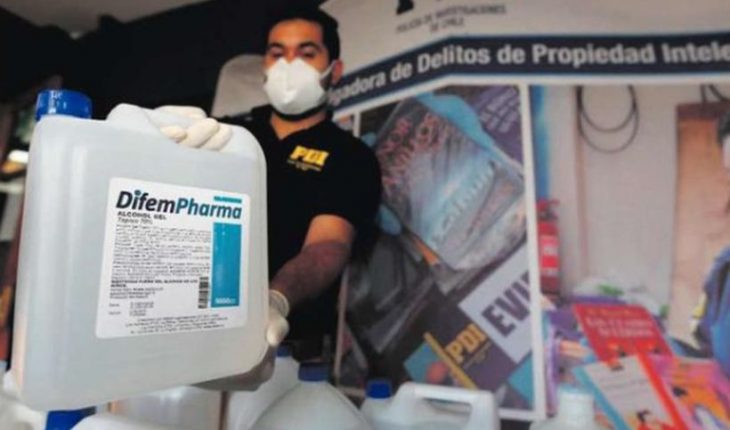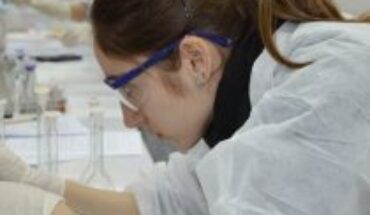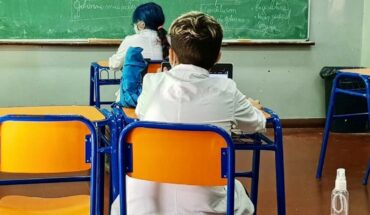Demand for bloody items in time of pandemic has activated a black market that, in addition to the associated legal and economic damage, could have serious effects on the health of those who buy them, which is especially serious in a product that has become everyday today: alcohol gel.
According to a history provided by the Investigation Police (PDI), so far this year 62,196 litres of this liquid have been seized in the country, produced and sold illegally.
Most seriously, the review by the Institute of Public Health (ISP) showed that of eleven games analyzed, only one complied with 70% alcohol, which corresponds to the standard percentage for this product and that is what gives it the sanitizing property that is sought to reduce covid-19’s infection options.
“So far there are no reports of the possible presence of other components, but the only fact that does not meet the requirement of the percentage of alcohol is considered as an adulterated product, which can cause damage to health,” the head of the National Medicines Agency (Anamed) department of the ISP, Heriberto García, tells this medium.
“Using a product that does not meet the technical alcohol specification, with concentrations below 70%, means that people are not cleaning their hands,” he says.
Although Garcia remembers that this product does not replace hand washing with soap and water anyway, it is a reality that many people base on it their daily toilet against SARS-CoV-2.
The national head of Economic Crimes and Environment of the IDI, Prefect Inspector Jaime Ansieta, comments that, unfortunately, beyond what they have managed to detect, the risk lies in what has already been sold.
“Why? because there are people who have the feeling that they are being protected, they are sanitizing from the spread of the virus, when in fact they are not. That’s much more dangerous than what’s seized in the factory,” the officer says.
Ansieta claims that products have been found in which the concentration of alcohol does not even reach 30%, so in no way will it grant the desired beneficiary.
More than alcohol
The POI has halted in this pandemic period the sale to public of 134,495 litres of sanitizing products, valued at just over 425 million pesos.
After the gel alcohol, in decreasing order the most seized are quaternary ammonium, chlorine, chlorine gel, triclosan, disinfectants and cleaning gel.
They have come to them by anonymous complaints and online monitoring and social networks in which they research the different ways of selling that are in the market.
“The offender has a great capacity to adapt because he detects the advantage that we are in a problem that affects us all, we are facing an urgency. Those are the things that the criminal takes advantage of, to whom a spectacular breeding ground is opened,” adds Ansieta.
When the police and PSI disrupt a band or company engaged in the illegal sale or production of such products, health and criminal investigations are opened.
For the first one starts a summary that can end with fines reaching 1,000 Monthly Tax Units (UTM), that is, just over 50 million pesos.
A criminal investigation is considered a public health offense, which is punishable by up to three years in prison or fines ranging from 6 to 200 UTM, or $301,932 to $10,064,400.
For safety, specialists call on consumers to favor the purchase of sanitizing products at authorized premises and to review the health resolutions that should be on the packaging labeling.
translated from Spanish: Of all the illegal gel alcohol found only one had sanitizing power
July 13, 2020 |




